Interview with 'Beethoven in Love; Opus 139' Howard J. Smith
Howard Jay Smith is an
award-winning writer from Santa
Barbara, California. BEETHOVEN IN LOVE; OPUS 139 is his third book. A former Washington, D.C. Commission for the Arts Fellow, & Bread Loaf Writers
Conference Scholar, he taught for many years in the UCLA Extension Writers’
Program and has lectured nationally. His short stories, articles and
photographs have appeared in the Washington Post, Horizon Magazine, the Journal
of the Writers Guild of America, the Ojai Quarterly, and numerous literary and
trade publications. While an executive at ABC Television, Embassy TV, and
Academy Home Entertainment, he worked on numerous film, television, radio, and
commercial projects. He serves on the Board of Directors of the Santa Barbara
Symphony - "The Best Small City Symphony in America" - and is a member of the American Beethoven
Society.
WEBSITE | TWITTER | FACEBOOK
INTERVIEW BOOK CIRCLE ONLINE AT YOUTUBE
INTERVIEW BLOGTALK RADIO
About the Book:
At the moment of his death, Ludwig van
Beethoven pleads with Providence to grant him a final
wish—one day, just a single day of
pure joy. But first he must confront the many failings in his life, so the
great composer and exceedingly complex man begins an odyssey into the
netherworld of his past life led by a spirit guide who certainly seems to
be Napoleon, who died six years before. This ghost of the former emperor, whom
the historical Beethoven both revered and despised, struggles to compel the
composer to confront the ugliness as well as the beauty and accomplishments of
his past.
As Beethoven ultimately faces the realities of his just-ended
life, we encounter the women who loved and inspired him. In their own
voices, we discover their Beethoven—a lover with whom they savor
the profound beauty and passion of his creations. And it’s in the arms of
his beloveds that he comes to terms with the meaning of his life and
experiences the moment of true joy he has always sought.
Purchase Information:
Amazon
Q: Welcome to The Writer's Life! Now that your book has been published, we’d
love to find out more about the process.
Can we begin by having you take us at the beginning? Where did you come up with the idea to write
your book?
As a working professional writer, screenwriter, teacher and TV
executive for almost four decades, I am always on the lookout for great stories
of historical figures where my potential protagonist wrestles with the same types
of profound emotional or psychological issues that each and every one of us can
relate to in our own lives. I have also been a life-long lover of classical
music and in fact sit on the Board of the Santa Barbara Symphony – the best
small city orchestra in America.
When I came across the story of Beethoven’s death -- how at his last moment a
bolt of lightning strikes the side of his building, rousing him from a coma;
his eyes open, he sits up right, he shakes his fist at the heavens and then
collapses back to the bed and is abruptly gone -- I found the contrast to my
own near death experience stunning.
When I was not yet twenty-one and going to school overseas
in Singapore, I
had a severe motorcycle accident. As my body somersaulted through the
intersection, time stopped and a great and profound sense of peace and tranquility
suffused my consciousness. Fear,
especially that fear of death we all share, disappeared. My biggest surprise was landing very much
alive – and in pain – on the other side of the crossroads and not the “other
side” of life.
Beethoven’s death throes were so different from my calm
transition. That led me to wonder what
it would have taken for this great man to come to peace with all the turmoil
and failings of his life – and there were many.
In that nugget of a thought, Beethoven
in Love; Opus 139, was born. Although those injuries still ache decades
later – especially when it rains – researching and then writing this novel was
an absolute joy.
Q: How hard was it to write a book like this and do you have
any tips that you could pass on which would make the journey easier for other
writers?
Great
question. My initial thought upon coming up with this notion about Beethoven
being forced to review the failings of his life by his “Ghost of Christmas
Past,” before he could pass on to Elysium or paradise, was to read a single
biography, find the empty or white spaces in his life that we did not know much
about and then create a totally fictional story. After reading one biography, I
quickly grasped that scholars and musicians knew and had preserved a staggering
amount of information about Beethoven, so much so that there were few blank
spaces to fill in. If I was going to do a novel about such a famous man, I
realized that I was going to have to research that life fully and make sure
everything I wrote was as accurate as possible.
My
personal dilemma was this: All of my mentors from my early years as a writer, John
Irving, Tim O’Brien, Toni Morrison and the late John Gardner, all won National
Book Awards or some similar accolade.
When I committed myself to doing a Beethoven novel, I knew there were
two hurdles I had to overcome in order to be successful. First I would need to thoroughly
research everything about his life and times and be exceedingly accurate or risk
being shredded by historians and critics in the music world. Given the enormous amount of material on his
life, including dozens of major biographies, six volumes of letters as well as
his diaries – not to mention his music - I was initially daunted by the scope
and size of what I had taken on. I
decided not to proceed unless the quality of the writing line by line was at a
level that those mentors would have approved.
Feeling
the weight of their teachings upon me, I committed myself to doing everything
necessary to research not only Beethoven’s life, but the life and times of his family,
friends, and lovers and of the entire Napoleonic era, no matter how long it
took. And then and only then would I write a novel based on that research that
could stand up to the weight of any critic or criticism.
I
spent nearly two full years researching before writing a single word of
fiction. I built a chronological outline that ran over two hundred pages
itself. I read all the major biographies; all the volumes of letters to and
from Beethoven; I read his diaries and first-hand accounts of his life compiled
by his friends. I listened to endless hours of his music. I studied the history
of the times, from Voltaire and the French Revolution to the spas of Central
Europe and the life of Napoleon – whose ghost plays a central role
in the novel.
I
read each book at least three times: the first to get a general sense of its
content; the second to highlight specific notes (don’t even ask how many yellow
highlighters or sticky notes I went through); and the third to transfer key
information to my outline. If Beethoven or Napoleon referenced a philosophical
text, such as the Bhagavad Gita or
the works of Confucius, I would read those as well. I had majored in Asian
Studies as an undergrad, so that aspect came easily to me. I should note that
the influence of Asian philosophy on Beethoven is unmistakable if one reads his
diaries and letters, yet it is one area that musicologists generally miss not
having any exposure to Eastern thought. His quotes go right over their heads.
Furthermore
every character except for three minor but important ones, is an actual
historical figure. I researched them as well.
And of those minor characters, one is inspired by my friendship with the
now deceased novelist, John Gardner, and the other two are an homage to my own
family’s East European history that I stumbled upon doing my research. I even
learned that Napoleon, on his retreat from Moscow,
passed through a tiny village in Belarus,
the village my maternal grandparents are from, and that critical events in the
war took place there.
Shaping
the novel out of such a full and rich life had little resemblance to my initial
notion of finding the blank spaces in his life and creating a fully woven
fiction. Instead it was more like chipping away at a giant block of marble to
find the essence of his life.
When
I was nearly done with a first polished draft, I began showing it around to my
friends in the writing community and to a one, their response was, “Yes, you’re
there.” Since that time, the reviews
from critics in the literary world, the music world and more specifically, the
world of Beethoven scholars and devotees has been wonderful – and gratifying.
In fact my first public reading was for a gathering of Beethoven scholars at
the American Beethoven Society’s Thirtieth Anniversary Conference. There I was, reading a work of fiction to the
very people who knew more about Beethoven than anyone, and, thankfully, they
loved it.
And what tips would I pass on to other writers? Researching and then writing this novel was a
long journey, every moment of which was an absolute pleasure. I learned ages ago that if you want someone
to take the time and effort to read your book and find your work compelling and
engaging, you must also be equally passionate about what you create. I
absolutely love the entire process of crafting a story, from jotting down ideas
and doing research when necessary, to shaping each line, each paragraph, each
character, each scene. I want to transport the reader into a vivid and
continuous dream that is so powerful, so all-encompassing that the next thing
they know is that someone is calling them to dinner. So my first advice to any
other would be writer is this: love what you are doing and let that passion be
your motor or you will most-likely fail.
Q: Who is your publisher and how did you find them or did
you self-publish?
My friend and fellow writer, Russell Martin, author of the
non-fiction bestseller, Beethoven’s Hair,
also runs a small independent press, SYQ.
The publisher of my previous book, Opening
the Doors to Hollywood, was Random House. It was however not only a
non-fiction work based on film and writing classes I taught at UCLA, it was
also a long time ago. After a number of
attempts to reach out to literary agents and other publishers, I realized that
the publishing world had vastly changed since Opening the Doors to Hollywood was released. Every agent I spoke with wanted either a
celebrity driven piece or an easily commoditized book of 250 pages. Beethoven
in Love; Opus 139 is neither. I ultimately decided to go with SYQ and found
the process much more to my liking. I
was involved and had control over every aspect of the process, including the
layout, design and cover. I should add
that the cover art was done by my son, Zak Smith, a well-known artist in his
own right with five published books and paintings hanging in eight museums
around the world.
Q: Is there anything that surprised you about getting your
first book published?
My first book John
Gardner: An Interview was published way back in 1979 by the now defunct New
London Press. The biggest surprise was walking into a bookstore in Middlebury,
Vermont, that summer and seeing it on the
shelves and for sale. Wow!
Q: What other books (if any) are you working on and when
will they be published?
As
I noted before, I am always looking for great stories. After scanning dozens of
historical eras and possible new characters from Machiavelli to Brahms, I
finally settled on another one related to music. This novel, Mozart, Da Ponte, Scandal, will focus on
the life of Lorenzo Da Ponte, the man who wrote the lyrics for Mozart’s three
most famous – and scandalous in their time – operas, ‘The Marriage of Figaro,’
‘Don Giovanni,’ and ‘Cosi Fan Tutti.’
Born
a Jew in 1749, Da Ponte not only outlived Mozart by some 40 years, he also grew
up in and around Venice in an era
when people still ran around in capes and masks all year round. After his
father converted the entire family to Catholicism when Lorenzo was only 14, he unwillingly
became a priest in order to get an education. He led a rogue’s life; a priest and literary
scholar who would say Mass on Sunday while whoring, drinking and gambling the
other six days of the week with his friend, Casanova, the infamous role model
for Don Giovanni.
Always
too politically outspoken for his own good, he was successively expelled from
the Veneto, Venice
and Vienna and had to flee debt
collectors in London before making
his way to early modern New York where
he opened an Italian bookstore in Manhattan
and a deli across the river in New Jersey. He started an opera company – the seeds of
today’s Met – and was the first professor of Italian at what became Columbia
University. Da Ponte was the
classic survivor, who in his day did everything he could to staf afloat
financially while still writing a collection of operas that were considered
scandalous in their day but are today revered as some of the finest works of
that genre ever created. His eight decades constitute a life adventure well
worth exploring. When and where will it be published? I have no idea at the moment nor is it much
of a concern. My intention is to apply the same discipline to Da Ponte as I did
to Beethoven and trust the future will resolve itself in due course.
Q: What’s one fact about your book that would surprise
people?
Everyone knows some of the common facts of Beethoven’s life
and struggles, be it his Fifth Symphony, his progressive deafness, or his
Immortal Beloved letter, but few are aware that this self-educated man was also
a voracious reader of philosophic texts from around the world. He was profoundly influenced by those works,
such as the Hindu sacred text, the Bhagavad
Gita, whose themes not only appear in his diaries but also worked their way
into the very fabric of his Ninth’s Symphony’s Ode to Joy.
Q: Finally, what message (if any) are you trying to get
across with your book?
As one of the fictional characters, Johann Gardner, a writer
inspired by my mentor, John Gardner, says to the composer in the course of Beethoven in Love; Opus 139, “What is a
novel, but a collection of lies we tell to reveal greater truths.”
Whether we are conscious of it or not when writing, (and
hopefully one is always conscious) a book, a story, an article is always about
something, it always presents a world view, an attitude, a philosophy of
life. In simple terms, you want the
reader to finish your book, and feel as if they have not only been thoroughly
entertained but that they have also learned something about life and the way of
the world. If a character does
something, it has its roots in their behavior and thoughts and there are
consequences that occur because of those attitudes and actions – and this is
what I would not only want my readers to reflect upon when they finish but to
also consider how those situations, behaviors, and ideas might impact their own
lives.
In the novel, at the moment of his death, Beethoven must
find a way to come to peace with all of the failings of his life in order to
order to enter Elysium, be rejoined with his Immortal Beloved and find his one
moment of joy. I would hope then that my readers reflect upon these greater
truths and in their own way find their moment of joy, their passion for life
and a greater degree of peace and contentment for having gone on this journey
with Beethoven.
Q: Thank you again for this interview! Do you have any final words?
Yes. To everyone who reads this interview, please buy a copy
of Beethoven In Love; Opus 139 – you
will not be disappointed.






















































































































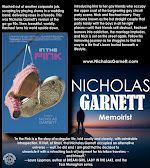



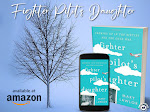





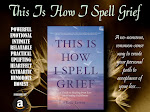
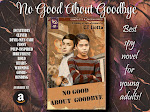


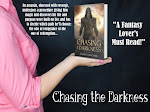
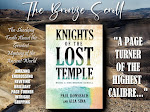


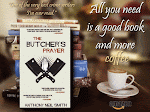
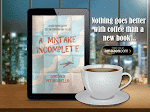

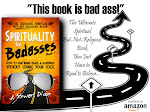

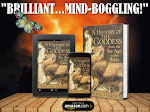


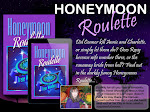
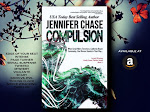

















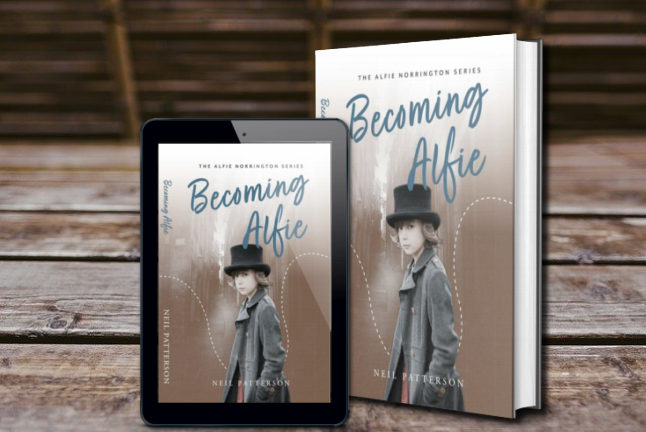
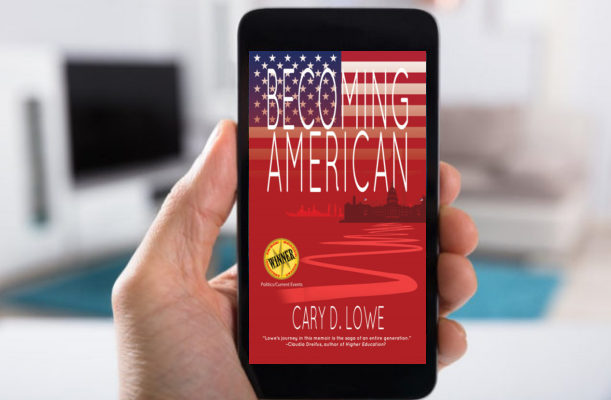






It was an amazing read! It explores the deep emotional conflicts of Beethoven's life and the longing for what he never found. One gets an historically accurate view of his life and the world around him at that time that helped form who he was and the music he created.
ReplyDeleteFor anyone who loves Beethoven's music this is a must read. You will not want to be disturbed as you delve into this incredible novel
yes i am please thanks
ReplyDelete